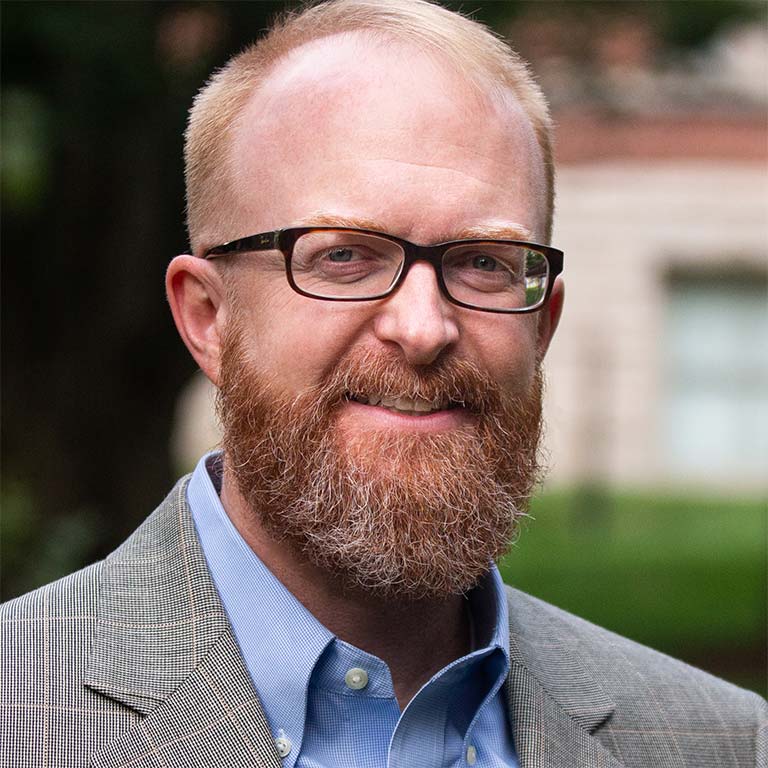Dr. Debra Friedman's SLST-S 319 The Multilingual Self: Identities, Identification, and the Learning of Additional Languages (Special Topics in Second Language Studies) discusses identity and identification and their relationship to language learning and/or loss as described in research and language learners' narratives and autobiographies.
An interview with Dr. Debra Friedman, a Professor in the Department of Second Language Studies, is below.
How does this course fit the theme of this year’s Themester?
Dr. Friedman: "Identity—both how we see ourselves and how others see us—has long been understood as a factor that shapes the experience of language learning in both positive and negative ways. On the one hand, the extent to which we affiliate with speakers of a language or can imagine ourselves as a future speaker can affect our motivation and ultimate success in learning it."
Why is it important for students to take this course?
Dr. Friedman: "We often hear how multilingualism has become important in our increasingly mobile and interconnected world. We therefore need to understand the many factors that can affect whether an individual is able to access this valuable resource. For example, there are sometimes complaints about immigrants who 'refuse' to learn English, as if this is simply a matter of personal choice or lack of effort. There is also a widespread belief that students on study abroad will effortlessly learn the language through immersion in the local culture or that individuals whose family speaks a non-English language at home will automatically become bilingual when they learn English in school. As such beliefs can have a great influence on social and educational policy as well as attitudes towards language learners, it is vital to develop a more nuanced understanding of the importance of social factors such as identity on the process of language learning."
What knowledge or skills do you hope they gain?
Dr. Friedman: "My primary aim in this course is to raise awareness that language learning is not simply a matter of mastering a linguistic system but is inherently embedded in a social and political context and impacted by factors such as attitudes towards different languages and power relationships. For example, male and female students on study abroad may have different experiences and different opportunities to interact with locals depending on the gender attitudes in country where they are studying. Whether or not an individual will affiliate with (and thus learn) their heritage language may depend on attitudes towards the language in the larger society. Individuals who do not fit into prescribed social categories (e.g., 'French speakers are White') may not be accepted as legitimate speakers of the language that they want to learn. In raising and critiquing these issues, I hope that students will be able to apply insights from the course to reflect on how identity and identification have shaped their own and others’ language learning experiences."
What, to you, is the most interesting aspect of this course? What do you learn from teaching it?
Dr. Friedman: "Although I have not taught this course before, the theme of identity has figured into other courses that I have taught on second language learning. What has been most interesting to me has been what I’ve learned as my students have shared their own language learning experiences and how these have been shaped by various facets of their identities, such as gender, ethnicity, race, class, and religion. This in turn has inspired me to cast a wider net in finding material for this course so that we can explore a language learning in a broader range of contexts and languages with authors representing diverse gender, ethnic, racial, and first language backgrounds."
Are there any assignments that you are particularly excited about?
Dr. Friedman: "There are two assignments that I have used in past courses that I am particularly interested in trying out in this course. The first is a short essay about students’ own experiences learning an additional language that will be written at the start of the semester and revisited at the end of the semester. The aim of this assignment is to encourage students to reflect on and possibly reconsider some of these experiences in light of what they have learned in the course about language learning and identity. The second assignment is a final project in which students will select, read, and analyze an autobiography of someone who learned an additional or heritage language, using what they have learned in the course to analyze how identity shaped the author’s language learning experiences."
What type of students would you encourage to take this course?
Dr. Friedman: "This course should be of interest to anyone who ever tried to learn an additional language, which is probably all of us! It is my hope that developing more knowledge of the interconnections between language and identity will help students better interpret their own struggles and successes in language learning and lead to a more sensitive understanding of others who are engaged in similar struggles."
View this course
View Themester 2022 courses



 The College of Arts
The College of Arts